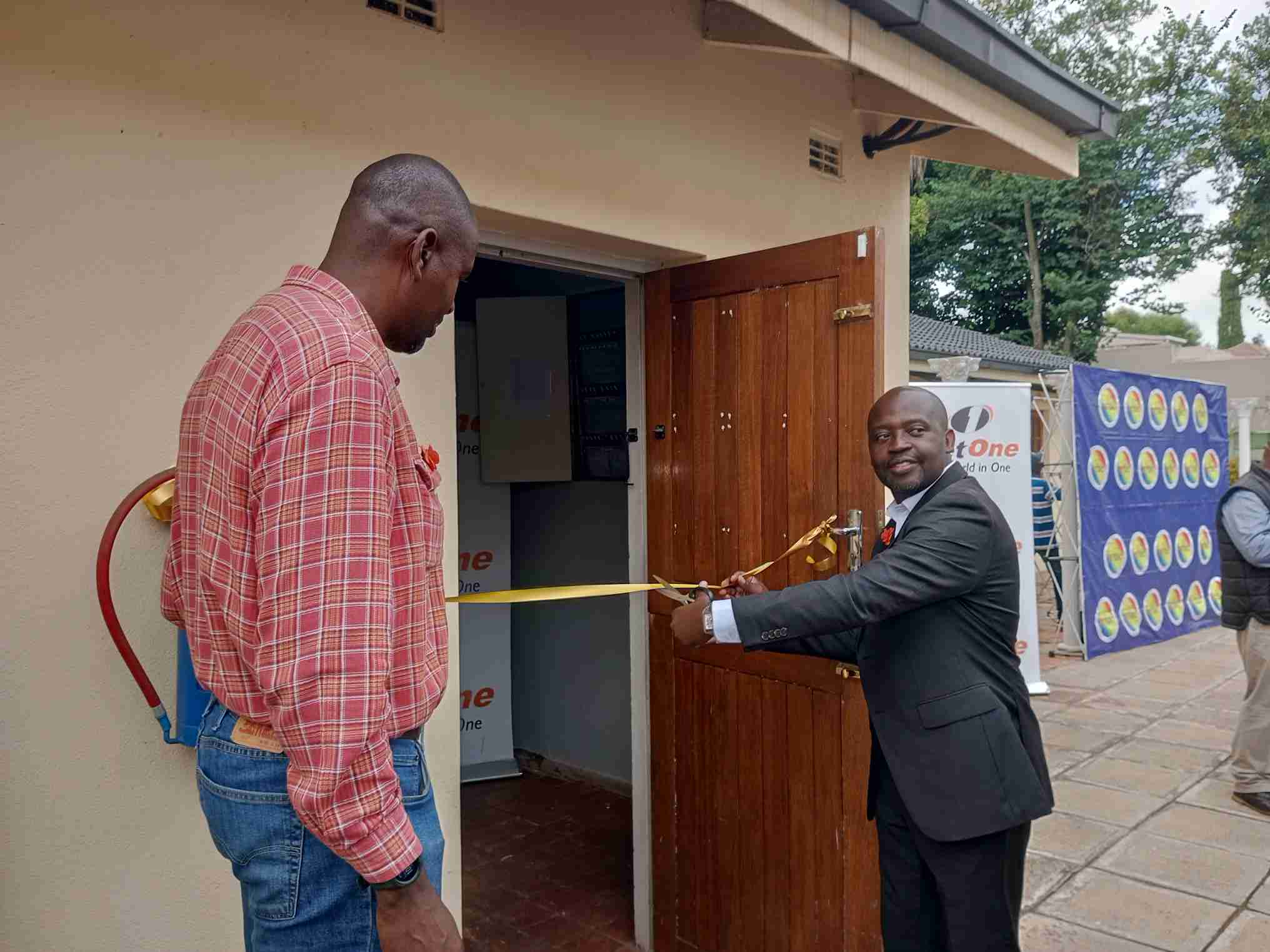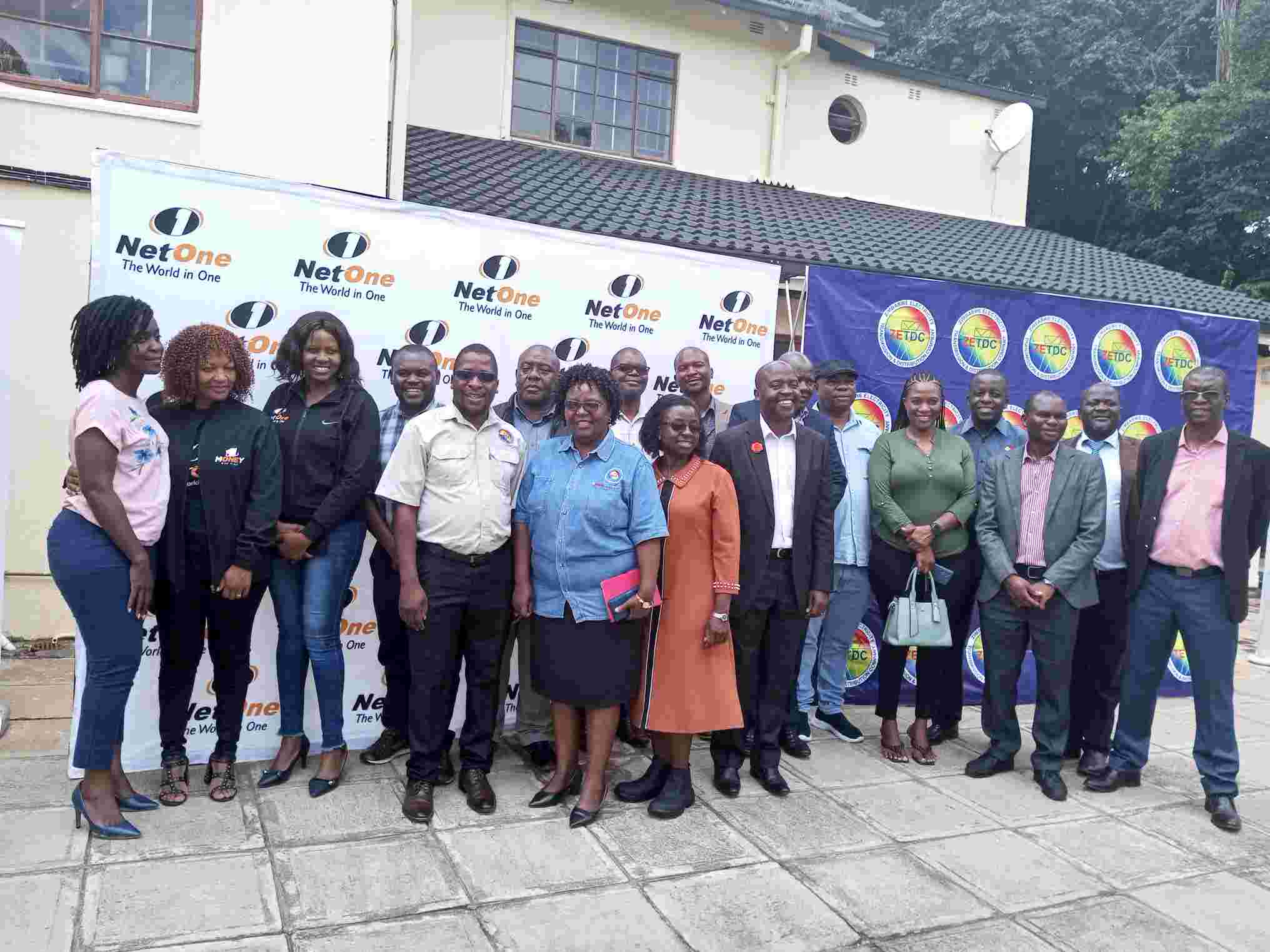|
Getting your Trinity Audio player ready…
|
A partnership between the leading mobile telephony company, Netone, and power utility Zimbabwe Electricity Transmission and Distribution Company (ZETC) has seen the rollout of smart meters across the country in the quest to entrench digital innovation and transformation.
In his address during the rollout of the programme at the NetOne High-Value Customer Centre in Harare today, Engineer Howard Choga, the ZETDC Managing Director said Netone and ZETDC have a lot in common.

He said the ZETDC is rolling smart meters as part of the building blocks towards a smart grid.
“Digital plays a pivotal role hence Netone is key to this journey. Netone will provide a network platform which is key in the rollout. The ZESA Executive Chairman declared the year as the year of Implementation. This is part of the strategic response to Vision 2030.
“We started with Harare and hope to finish in 44 days and roll out to all other regions. Smart meters are targetting large to medium power users whilst prepaid meters are targeting all postpaid customers. Smart meters come with a plethora of benefits including customer empowerment and the ability to be in charge of your bills. Physical recharging base stations will be a thing of the past. This will be done remotely from your office. I would like to congratulate Netone for this milestone and wish them well,” Engineer Choga said.
In his remarks, Engineer Jeremiah Munembe, the NetOne Chief Operating Officer, Eng Jeremiah Munember, speaking on behalf of the company’s Chief Executive Officer, Eng Rapahel Mushanawani, expressed Netone’s delight in partnering with ZETDC in the smart meter programme.
He appreciated the milestone and said ZETDC demonstrated its strategic response to Vision 2030 since electricity is a key enabler in the attainment of the goals and aspirations of the nation.
‘We would like to assure ZImbabwe of our commitment to this cause as the leading digital player in this country. We boast of good network coverage and our flexibility to adapt to new technologies like 5G, LTE, and LTE is advanced. We are ready to support the utility towards a smart grid. Once again, we would like to thank the ZETDC team for considering us as their top strategic partner. We assure ZETDC of our full support,” Eng Munembe said.
In buttressing the sentiments, Mr. Learnmore Musunda, General Manager of Mobile Financial Services for NetOne, said the occasion was very important in the country’s journey towards the introduction of smart cities.
“The provision of smart cities is also captured in the National Development Strategy (NDS1). This will also see NetOne and ZETDC improve customer services in an innovative way. ZETDC is leading the transformation of the distribution of electricity to customers. The launch of smart meters is going to provide convenience to our customers. In the past, electricity was bought at the shops but now it is going to be done via the phones. There is no need for mobile network operators go to top up tokens at base stations. This can be done anywhere. This reduces travel costs. The base stations can be topped up anywhere. NetOne is ZETDC’s partner of choice when it comes to connectivity,” Mr. Musunda said.
In highlighting the advantages of the initiative while delivering the closing remarks, Mr. Isaiah Nyangari, the NetOne Chief Commercial Officer said the smart metering technology brings convenience in that medium and large power uses like mobile network operators that were previously left out of the system are now taken on board.
“Innovation provides customers with convenience. Everyone is set to benefit from the initiative. Revenue will be collected upfront. As highlighted by the ZETDC engineer, smart meters can detect fraudulent use of meters. Defaulters can be switched off remotely. Electricity is purchased upfront. No need for MNOs to climb mountains to access base stations. It’s a way of responding to NDS1,” Mr. Nyangari said.
